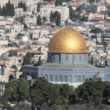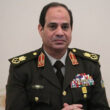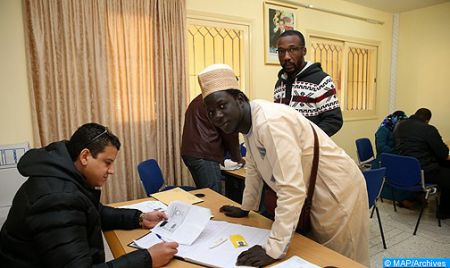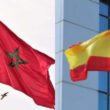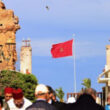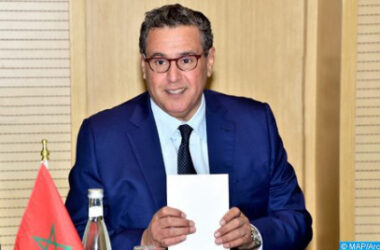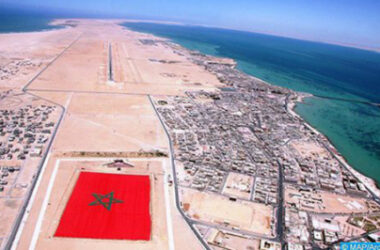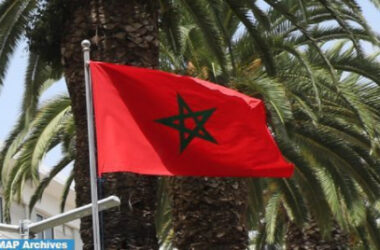This comprehensive immigration policy, which aims to be humanistic, pragmatic and supportive, makes Morocco a land of welcome and dignity, where refugees and migrants enjoy full protection and have the same access as Moroccan citizens to education, housing, health care, vocational training and employment.
Pioneering, inclusive and responsible, this policy, which is based on humanized border management that takes account of the major changes in the migratory phenomenon at regional and international level, enshrines the Kingdom’s constitutional fundamentals and its dynamic approach to migration governance, based on human rights principles and the cardinal paradigm of protecting migrants and vulnerable people.
Dominated by the humanist and protective prism of migrants, this policy denotes the coherent approach of the Moroccan authorities in continuity with the strategic course set by the High Royal Vision in 2013 for the implementation of a new humanist and inclusive National Immigration and Asylum Strategy.
Migrant regularization operation: Morocco sets the pace
The deployment of this new national immigration and asylum strategy led to the launch in 2014 and 2016 of two exceptional operations to integrate irregular migrants in Morocco, during which the situation of over 50,000 foreigners, mainly from sub-Saharan African countries, was regularized.
The aim of these operations to regularize the situation of illegal migrants is to enable them to fully enjoy their fundamental economic and social rights, and to facilitate their integration into the labor market.
For Morocco, this unprecedented policy of integrating migrants on a continental scale is a deliberate choice that contributes to enriching the diversity and vitality of Moroccan society, which for thousands of years has been founded on a perfect model of openness to others, hospitality and cultural and civilizational mix.
The goals of this policy draw on a system of shared values that has been the DNA of Moroccan society for thousands of years.
In line with this strategy, which enshrines the Kingdom’s eminently African vocation and is based on a supportive and inclusive approach, Morocco welcomes more than 12,000 sub-Saharan students to its universities, 90% of whom receive scholarships from the Moroccan government.
The human dimension of migration management in Morocco also lies in the voluntary return operations organized with the International Organization for Migration for the benefit of migrants wishing to return to their countries of origin, in full respect of their rights and dignity and in coordination with African countries. More than 8,100 African nationals have benefited from these operations since 2018.
Morocco, a land of welcome for migrants
In the same vein, Morocco was keen to include migrants and refugees in the Covid-19 vaccination campaign, and is now considering ways of extending access for foreigners living in Morocco to the ambitious project to generalize social protection.
With a view to strengthening the humanitarian management of its borders, Morocco adopted in 2020 a set of “standard procedures for a system of referral and care for migrants rescued at sea or apprehended at borders”, in order to organize the process of reception, referral and care of migrants according to their status, whether they are economic migrants, asylum seekers or victims of slavery.
On the other hand, and in contrast to other countries in the region for whom the collective stakes are abstract, Morocco is considered a credible State and a reliable partner on the regional scene, which assumes its responsibilities in terms of border control and the fight against all forms of border trafficking, including migrant smuggling and human trafficking.
Thanks to all these efforts, Morocco is one of the first countries in the South to have adopted a genuine solidarity-based policy to welcome sub-Saharan migrants, following an integrated human approach that protects their rights and preserves their dignity.
It can therefore pride itself on being a model for many countries on the continent, having been the first Arab country to adopt such a policy, and one of the very first nations to ratify the Geneva Convention.
The operationalization of this unprecedented national strategy at regional level elicited positive reactions from States and international organizations alike, and earned the Kingdom international and continental recognition, as reflected in the designation of HM King Mohammed VI as the Leader on Migration issue in Africa.
Similarly, as part of Morocco’s human efforts to protect the dignity and rights of migrants and vulnerable victims of the mafia and organized crime, Morocco’s Royal Navy has rescued over 17,000 people at sea between 2021 and 2022, and over 1,300 human trafficking and illegal immigration networks have been dismantled in the last five years alone.
In this respect, the Moroccan approach is focused on protecting migrants’ rights, not only at land or sea borders, but in a broader perspective that includes post-return sequences linked to care, guidance, support and follow-up with alternative life projects through integration or a second chance through voluntary return.



